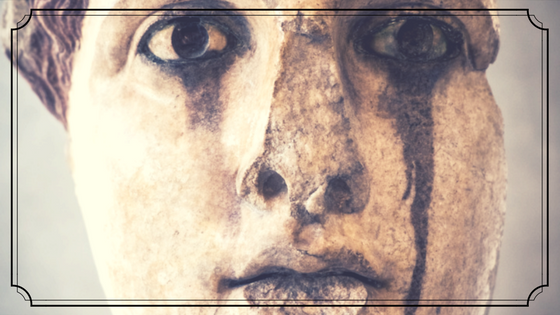The concept of love in Sappho's poetry is multifaceted, taking complex ideas--which other poets have written about ad nauseam--and putting them into concise, simplified form. (This brevity is of course helped by the fact that Sappho's works have only survived to this day in extremely fragmented form, but this too serves as a testament to her artistry, as it has endured and is beautiful and meaningful even in its incompleteness.)
Sappho's love is not confined tot he romantic love between man and woman, but also on the love that makes poignant other relationships such as those of mother-daughter and woman-woman. Although portions of her love poetry can be justifiably interpreted as erotic, Sappho's description of love transcends physical desire. There is something deeper, spiritual, in the way Sappho talks about people in love, and of people's love for each other. When creating the voice of a woman in love, she says:
I can't
speak--my tongue is broken;
a thin flame runs under my skin*
This is a simple and relatable style that separates Sappho from lesser poets who have written on such a popular theme.
One facet of Sappho's love which differs from many other poetic interpretations is how she relates love to suffering. In both "It's no use" and "He is more than a hero" the speaker refers to love as nearly killing her. This may seem to be a trite description now, since many poets write about dying of love.
But Sappho relates love and suffering in a different way: suffering is not caused by love so much as it is a part of love. Instead of complaining about how much pan love has caused her, Sappho's poems speak about it as if it were a natural part of being in love, as if love required a dichotomy of happiness and anxiety, pleasure and pain. In this way Sappho's bittersweet love is different from the melancholy and melodrama of later Romantic poets.
*"He is more than a hero" lines 10-13

No comments:
Post a Comment